How Can a Family Business Last for More Than 350 Years? Luxe.coтs Exclusive Interview with Italian High-end Fabric Giant VITALE BARBERIS CANONICO
April 15,2020
The British-style gentlemanтs suit worn by Colin Firth in the film "Kingsman" left a deep impression on the audience and made the tailorтs shop shown in the movie popular. Its prototype is the high-level men's clothing store, Huntsman, in Savile Street in England. Here, customers and tailors have a discerning eye and strict standards, and the fabrics chosen by the store are the first to undergo these tests. The Italian family fabric mill, VITALE BARBERIS CANONICO (later referred to as VBC), with more than 350 years of history, is the fabric supplier behind many top tailorтs shops, such as Huntsman in London, A. Caraceni in Milan, CIFONELLI in Paris, Panico in Naples, Clarance Wong in Shanghai and many others. Churchill, Putin, Bush Jr., and George Clooney have all worn suits made from its worsted wool fabrics. At the same time, it is also the world's largest exporter of high-grade woolen fabrics with an export volume that exceeds 80% of its annual production, serving customers in more than 90 countries.
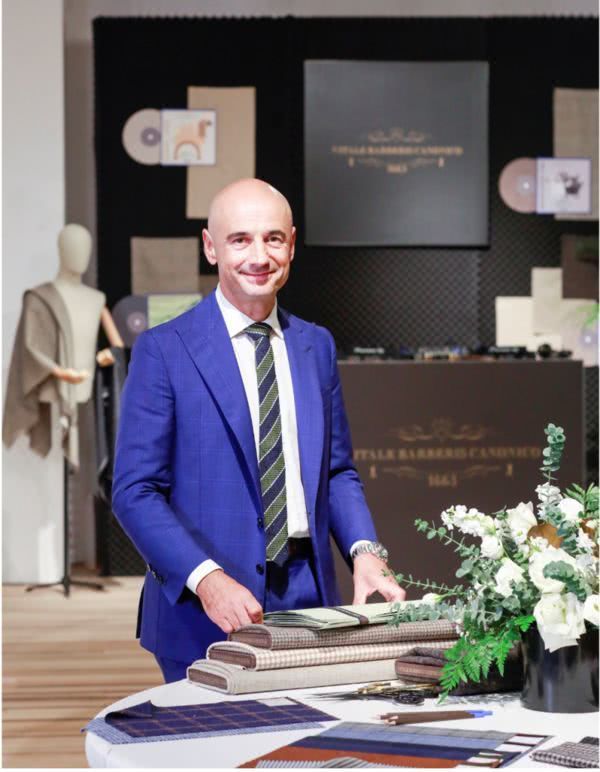
The history of the family business, which began in 1663, gives a strong backing to the 13th generation Alessandro Barberis Canonico, as well as a heavy responsibility. Under todayтs highly developed machine automation in the textile industry, finding a balance between innovation and inheritance is the secret of VBC's standing in the upstream of the supply chain of the high-end men's clothing industry. Alessandroтs first task after taking office was to introduce a new automated production system, while ensuring the quality and output and achieving the efficient use and sustainable upgrade of manpower, raw materials, and energy.
Sustainable fashion was the topic most frequently involved in the exchanges between supply chain companies and Luxe.Co. at the recent Milano UNICA exhibition held at Intertextile in Shanghai. Although it is one of the oldest wool-spinning companies in the world, VBC dare not stop its exploration and innovation in the field of sustainable fashion. Alessandro demonstrated the firmтs latest achievements in this field at this exhibition: low-carbon and an environmentally-friendly H.O.P.E (How to Optimise People and Environment) series of fabrics, and its first sustainability report.
How does VBC Define Sustainable Fabrics: Natural Color, Recycling, Strong Functionality
Three samples of men's clothing made of three different characteristics of H.O.P.E fabrics were displayed at VBCтs booth:
- Fabrics made of undyed natural fibers: The Houndstooth wool coat displayed on-site, without using any colorants and dyes in the production, is the original color of animal hair.
- Fabrics containing recycled wool: Inspired by the needs of some tailorтs shop customers, classic suit fabrics are produced from recycled yarns extracted from waste materials.
- Fabric containing a regenerated membrane: Blended flannel and 75% recycled polyester film blend. While retaining its original product characteristics, the recycled film fabric has the advantages of good breathability and impermeability, and is windproof and waterproof.
It can be said that the introduction of H.O.P.E. fabric further confirms that, whether it is natural material, recycled material or plant extract material, the high quality of the fabric can be fully guaranteed.
Besides, Alessandro said that the company is advancing the research and development of a new fabric containing polylactic acid, which is currently in the first stage. It is reported that this is a plant-based polyester synthetic fabric made of sugar extracted from corn and sugar beet which is 100% biodegradable and can reduce the impact on the environment by 40%.
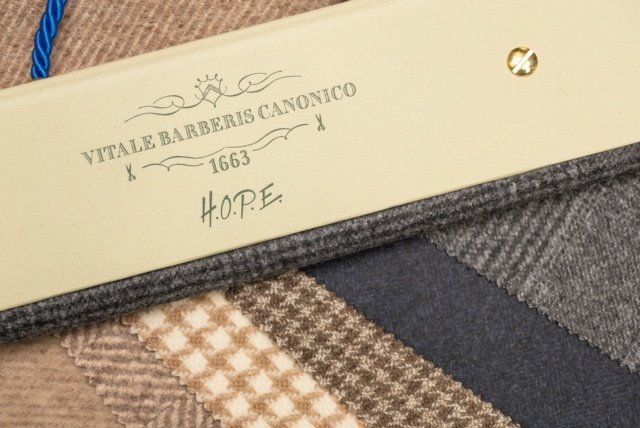
Learn What a Supply Chain Company is Doing from a Sustainable Report of a Wool Mill
Transparency in the supply chain is also a major trend in sustainable fashion. In 2018, VBC launched its first sustainability report to display the companyтs measures and achievements in the economic, social and environmental protection fields in a documentary form. Some of the important details are excerpted below:
Origin of raw materials: According to Alessandro, the firm purchased 5 million kilograms of wool from all over the world in 2018. VBC has set up a special wool excellence award and club to promote industry standardization to ensure the high quality of raw materials and animal welfare. VBC was also one of the first eight fabric manufacturers in the world to be awarded the "WOOLMARK GOLD" in 2010 by the Australian Wool Development Company AWI.
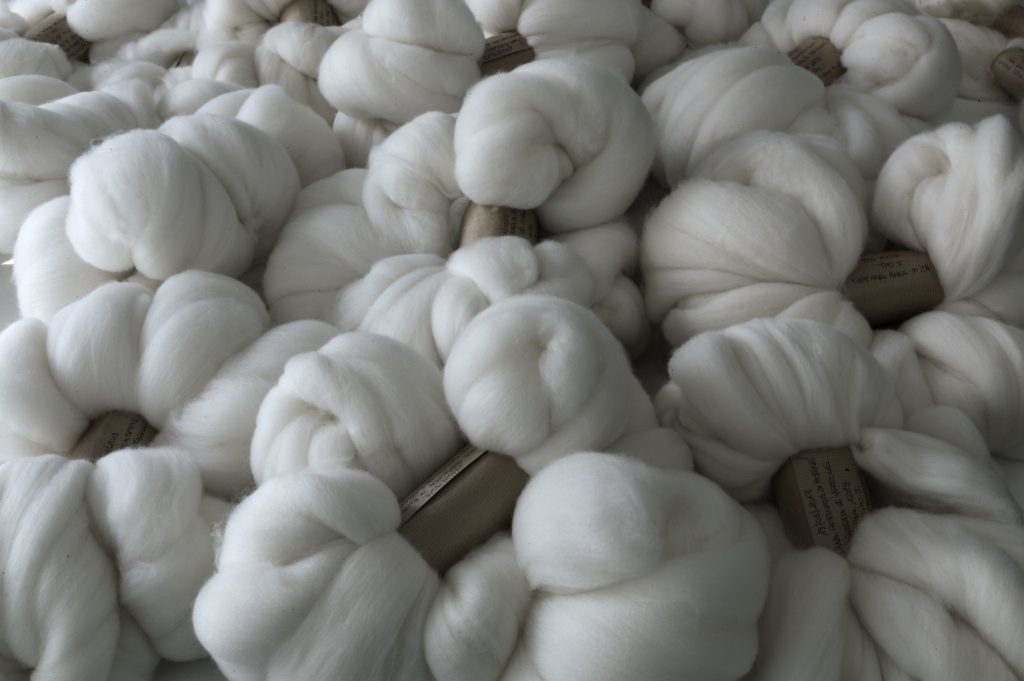
Noise pollution: The working environment of the wool processing workshop is usually accompanied by high decibel noise pollution which damages the workersт hearing and is one of the hidden dangers of industrial accidents. After installing a special soundproof enclosure, VBC's weaving workshop in Pratrivero, Italy became the only weaving workshop in the world with an average noise pollution of only 85 dB. Also, a special ventilation system is used in the factory and the noise that can disturb nearby residents is eliminated.
Water pollution: How to reduce energy and resource consumption in dyeing and finishing processes has become a priority for VCB. VCB's water consumption is only 39 liters per meter of finished fabric as opposed to the average consumption of 50-60 liters in the general textile industry. Besides, due to the companyтs strict wastewater analysis and concern about the quality of the water after the purification process, its purified water can be directly used for fish farming.
Air pollution: A special uncomfortable odor containing volatile sulfur organic substances is produced when the hairballs on the surface of the fabric are burned during the finishing process. To ensure the physical and mental health of workers and residents, VCB uses advanced post-combustion equipment which can purify 15600 cubic meters of smoke per hour and is commonly used in the pharmaceutical and petrochemical industries to eliminate this unpleasant odor.
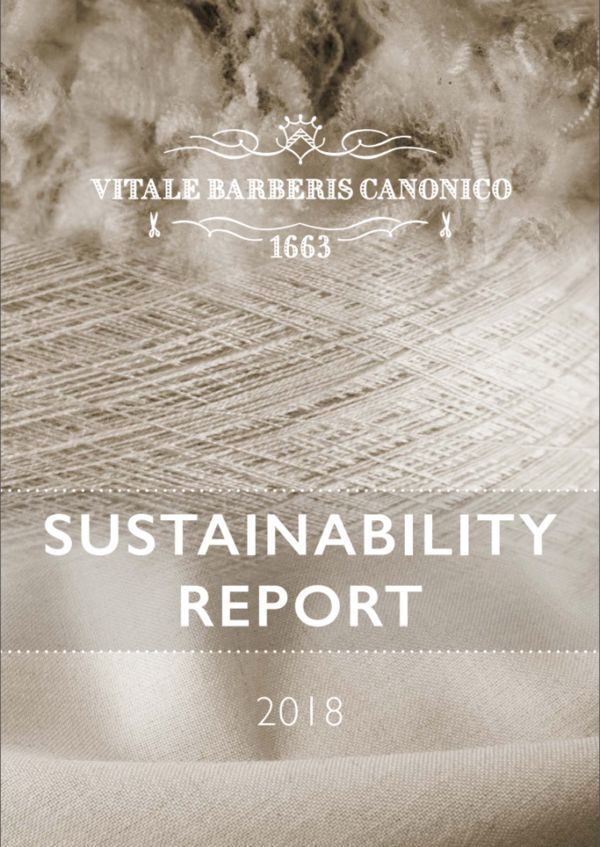
In the interview, Ms. Lucia Bianchi Maiocchn, who oversees the companyтs sustainability affairs, said, тThis document not only proves our solemn commitment but also represents an important first step for Vitale Barberis Canonico to take a sustainable development strategy. VBC will set new goals for itself every year and use this as a measure of achievement. "
More than 300 Years of Family Business Background = Backing + Heavy Responsibility
The history of the VCB family business of operating high-quality wool textiles can be traced back to 1663. Alessandro's grandfather, Vitale, first established the business in Pratrivero, Biella, Italy. The local high-quality water supply provided the prerequisite to produce high-quality woolen fabrics, and made Pratrivero an Italian textile center. When Vitale died in 1970, his sons Alberto and Luciano inherited the business, and the two older generation chairmen of the company handed over the leadership to the new generation, one of who was Alessandro, in 2008.
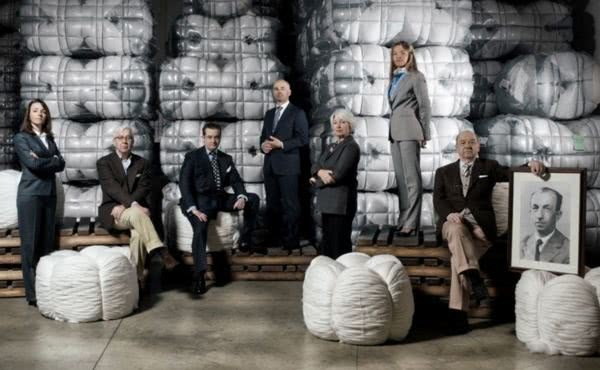
Today, VCB has been developed from a family-run workshop to a vertically-integrated wool textile factory, producing men's worsted high-end fabrics, using 100% cashmere, wool and mohair, silk, cotton, and other high-end fibers. VCBтs production exceeded 10 million meters in 2018, and the turnover increased to 173 million euros, reaching a 6% increase from 1.63 euros in 2017. The company currently focuses on export business, with exports accounting for 81% of its production. Alessandro revealed that the Chinese market contributed 15%, and this proportion is rising. There are 40 agency companies around the world, and Vitality Textile is responsible for distribution in the Chinese market.
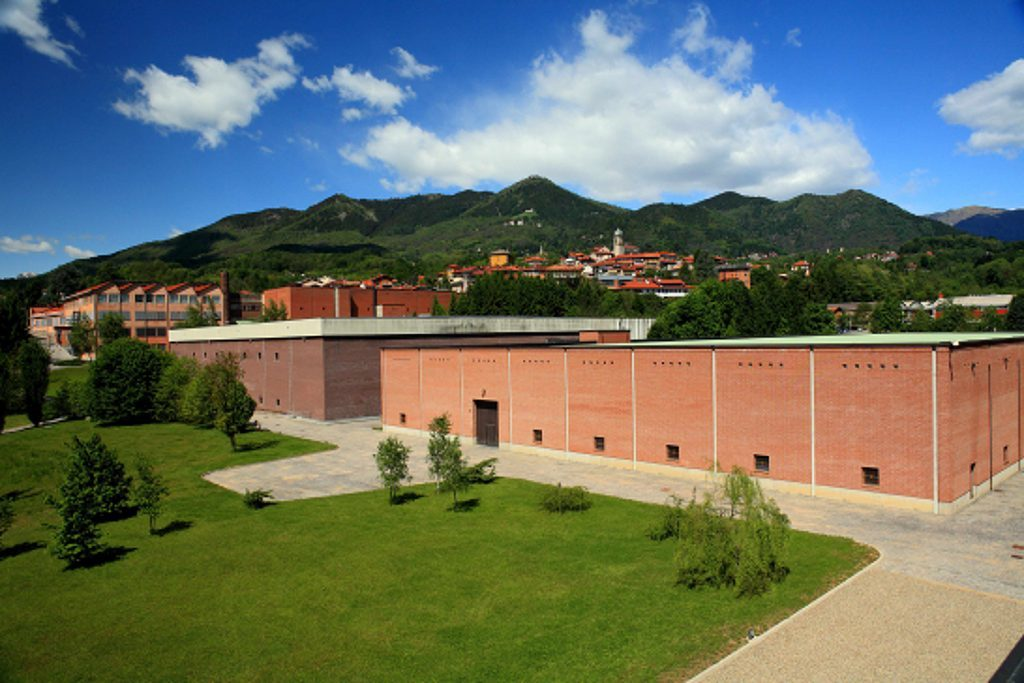
More Interview Records:
Luxe.Co: Please tell us your experience of joining the family business. What was the biggest challenge in the beginning?
ALESSANDRO: I have been in business with the wool mill since I was 14 years old. When I was in junior high school, I went to work like a formal worker in the mill every holiday. After university, I studied engineering and professional technology at the Polytechnic University of Milan. From officially joining Vitale Barberis Canonico in 1996 to becoming the company's chairman in 2009, I learned from the grassroots and took charge of the family business step by step. I remember when I was 10 years old, my father often told me things about the wool mill and introduced me to various looms, yarns and so on. Having taken over the family business, the biggest challenge is the heavy sense of responsibility because I need to make decisions about long-term planning and coordinate the relationship between the family members. I became CEO in 2009, and the sales increased from 71 million euros in 2010 to 174 million euros in December 2018, and now my responsibility is even greater.
Luxe.Co:Т In your opinion, what kind of business philosophy has supported VCB to stand for more than three hundred years in the wool textile industry?
ALESSANDROяМMy father gave me the following advice:
- First: Work hard. You have to sacrifice a lot of personal time. The textile factory is first, and the family is second.
- Second: Keep close contact with front-line employees of various departments to understand the progress of the front-line work and understand the operation of each department.
- Third: Learn how to get along with employees.
We now have 445 employees. The advice my father gave me was to hire top professionals who are smarter and better than you. We have been investing in improving the professional skills of our employees and sending them to learn the most cutting-edge technology around the world. Many families of employees even have two or three generations working for us. Now we regularly open part of the factory facilities to employees' families so that they can keep abreast of their work content and environment.
Luxe.Co:Т Does VCB also provide customers with women's fabrics?
ALESSANDRO: The company's core business is men's clothing fabrics, which account for 96%, and a small number of customers use our flannel for women's clothing.
Luxe.co: Do you have any examples of upgrading fabrics based on constructive feedback from customers?
ALESSANDRO: Of course. Some customers told us that their tailored suit clients reported that a lot of clothes are not worn for a long time and cannot be effectively used. Therefore, we launched a project making new fabrics from recycled yarns of old clothes based on customersт needs, which is also in line with the current trend of the circular economy.
Luxe.co: What is the difference between Chinese and Italian male consumers' suit fabrics?
ALESSANDRO: We show the same batch of fabric series to each market to get feedback from different markets. Italian consumers are more daring and use brighter colors, while the Chinese are more traditional and tend to choose less exaggerated colors. Chinese consumers are very fond of blue, light blue, dark blue, and other more subdued colors, whereas Italians will choose a richer base color, such as gray, coffee, green, and olive green. Waterproof wool fabric is more popular in the north of China. It can be used as a down jacket fabric to keep warm in winter, while resisting medium and large rainfall of 15mm precipitation.
Luxe.Co: What new trends do you see from this exhibition?
ALESSANDRO: Most people talk about natural fibers and fabrics, but the proportion of real natural fibers on the market is still small because artificial materials are much cheaper. Some customers in the US and France are more concerned about natural fibers, and Chinese customers are starting to pay more attention to this trend.





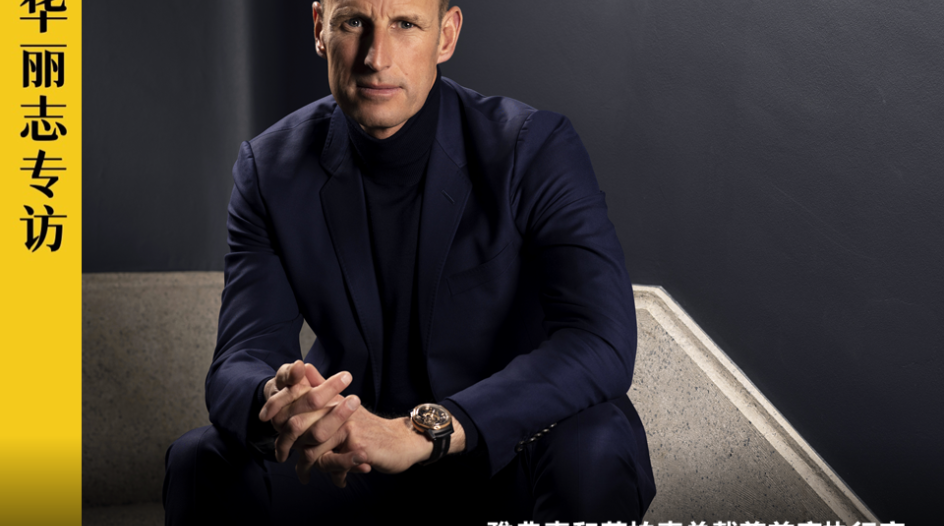






Comments